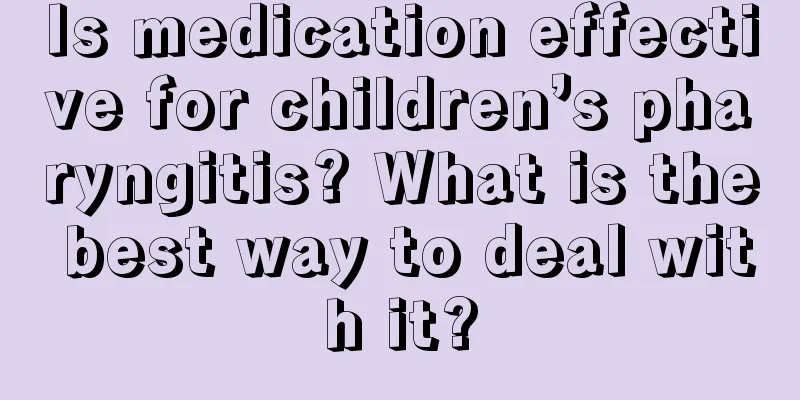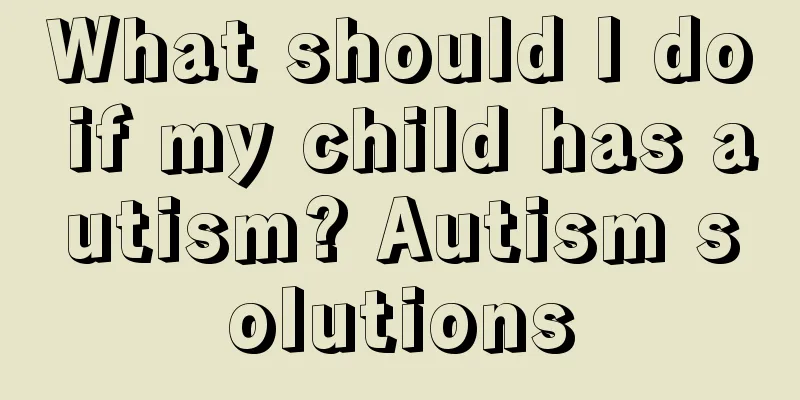Reasons why babies cry after feeding

|
When the baby comes out of the mother's belly, parents will be particularly concerned about the baby's every move. Parents must pay attention to the baby's care in life, especially in terms of diet. Some babies will cry all the time when they are feeding. This is very troubling for parents, and many young parents don’t know what the reason is. So what is the reason why babies cry after feeding? 1. Is the mother's breast milk sufficient? Is the baby full? Mothers can clearly understand how much milk a formula-fed baby consumes every day, but mothers often have no idea how much milk a breastfed baby can consume every day and whether he or she is full. Generally speaking, parents can judge whether their baby is full from the following aspects: 1. Has the baby gained weight? Is it normal? 2. Can the baby sleep for two or three hours or play for a while after feeding? 3. Is the baby's stool normal yellow paste? 4. Does the baby’s feeding time exceed 30 minutes? Generally, the appropriate feeding time is 15 to 20 minutes. If the answers to the above questions are all yes, the mother does not need to worry, the baby should be full. Signs that a baby is not full include: green stools, crying after feeding, no weight gain or slow weight gain, etc. 2. Check whether the baby has ulcers in the mouth. Some babies suffer from thrush, which causes them great pain when feeding and they may cry. Oral thrush is caused by a fungal infection, which is mostly transmitted through the birth canal in newborns or through contamination from unclean breastfeeding nipples or the mother's fingers. Mothers should carefully check their baby's tongue. If there are white spots, it may be thrush. 3. Does the baby have nasal congestion? If the baby has a stuffy nose, it will affect feeding. The baby with a stuffy nose can only breathe through the mouth, and cannot breathe while feeding, so of course he will cry. 4. Does the baby have indigestion? Babies under 3 months old may suffer from functional indigestion due to their immature gastrointestinal tract, such as bloating, diarrhea, etc., and need careful care from their mothers. The above are some common reasons why babies cry. Since babies are still young and do not have sufficient expressive ability, parents must pay extra attention to the baby's situation in daily life. Young babies have weak immunity and are easily attacked by viruses, so if you find any abnormal symptoms in your baby, you should seek medical attention immediately. |
<<: What is the development standard of a 110-day-old baby?
>>: Why do children bite their nails?
Recommend
What causes constipation in newborns?
The birth of every baby brings joy and hope to th...
How to treat diarrhea in children
Diarrhea is a very common disease. Many people do...
What to do if a 3-year-old child has tonsillitis
The incidence of tonsillitis among adolescents an...
Why do babies keep crying?
It is a common phenomenon for babies to cry, but ...
Why do girls have less hair?
Girls attach great importance to their hair, beca...
Treatment of red pimples on children's body
Nowadays, it is not uncommon for children to have...
What should I do if my child has cavities?
Children's tooth decay has a lot to do with t...
The fastest way to cool down a child
Many adults are very concerned about the health o...
Why does my baby's hair get wet when he sweats while sleeping?
I believe that mothers who often take care of chi...
What should I do if my child has astigmatism?
Astigmatism is a common eye disease, characterize...
Methods of educating young children
When the baby is young, we should not only pay at...
What should I do if a child’s tooth is broken?
Children may be naughty in their daily lives. If ...
Can babies take fever medicine and cold medicine at the same time?
When the baby's body is hot, parents should p...
Two-month-old baby sleep precautions
Children’s physical condition is getting worse da...
Methods and effects of acupuncture points for children
As we gain a deeper understanding of Chinese medi...









